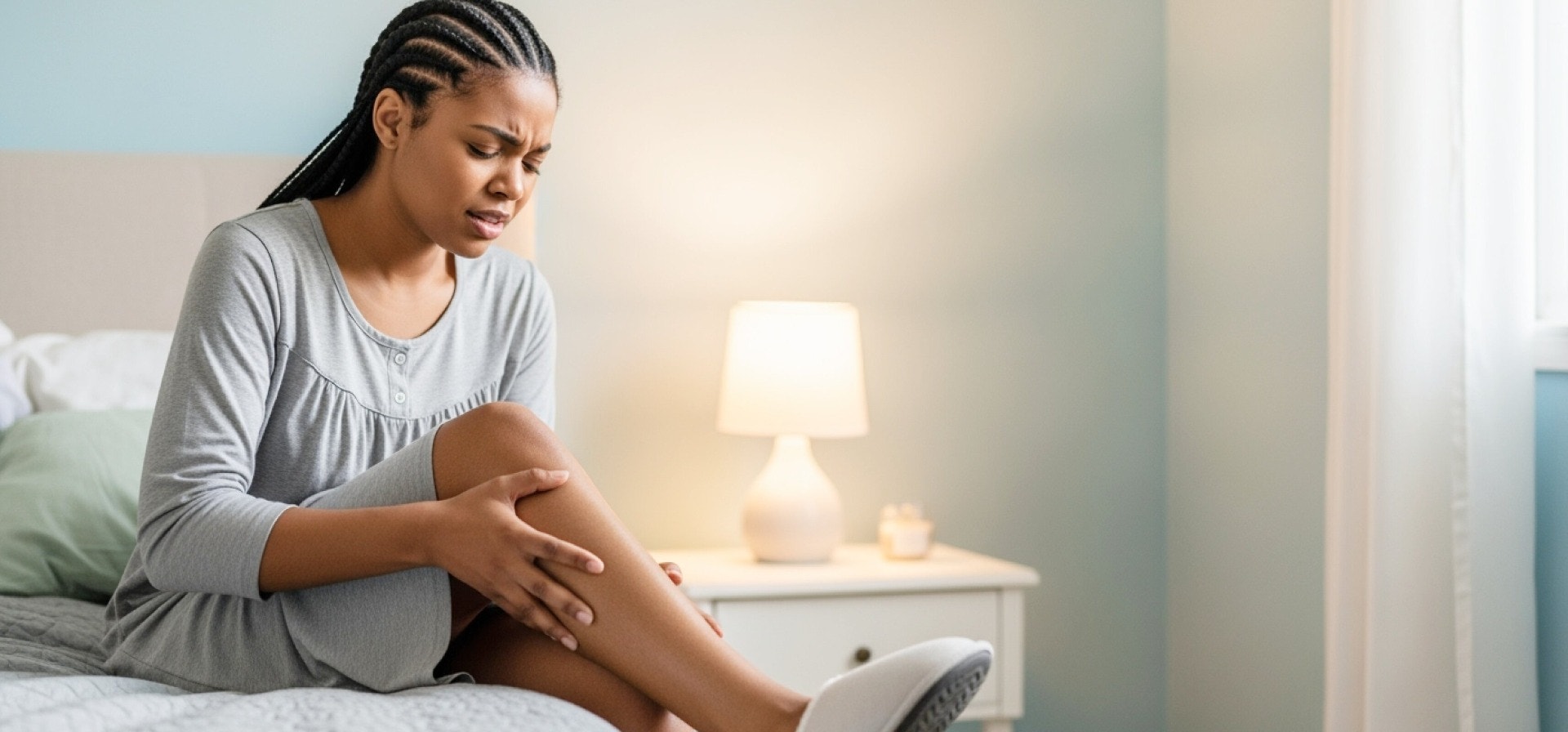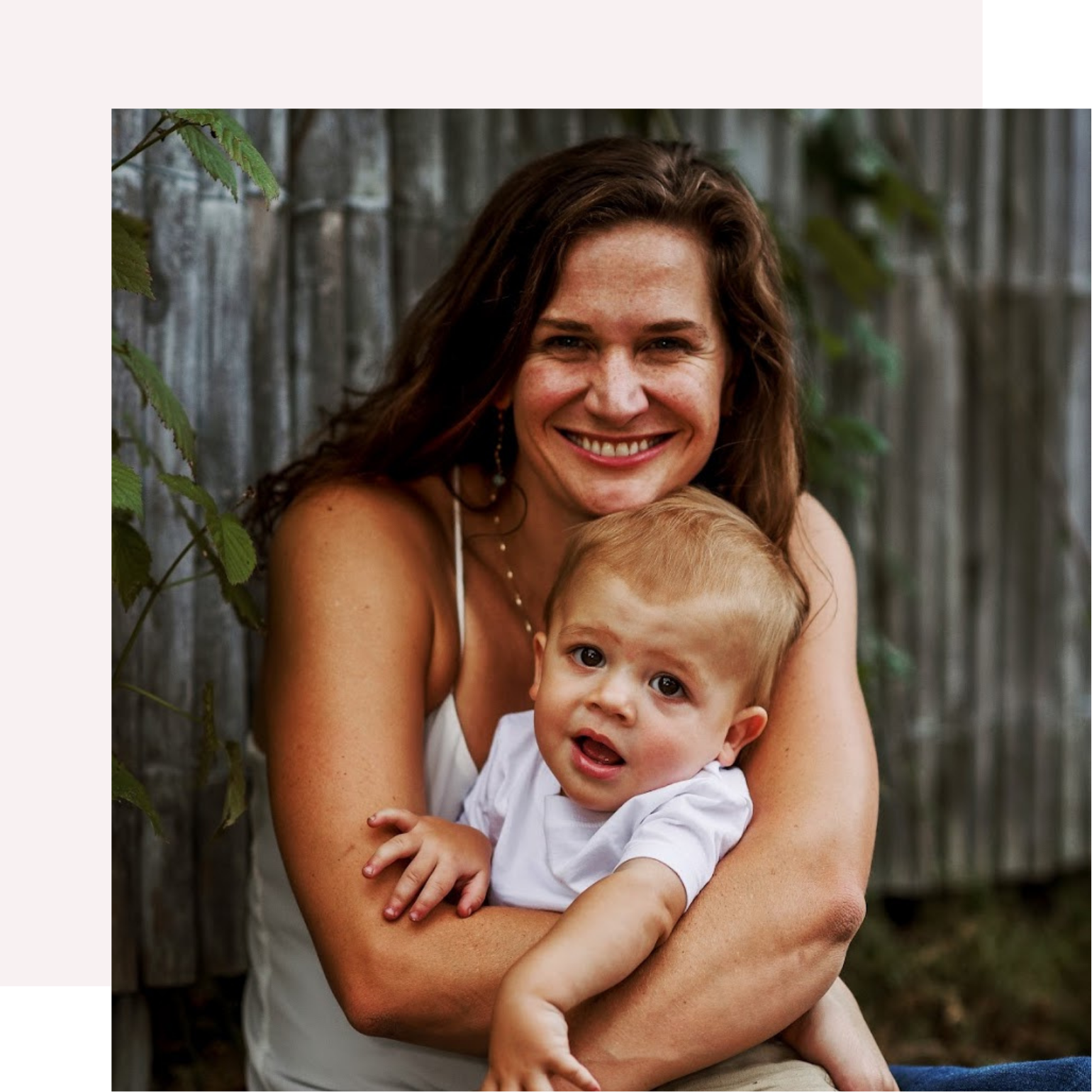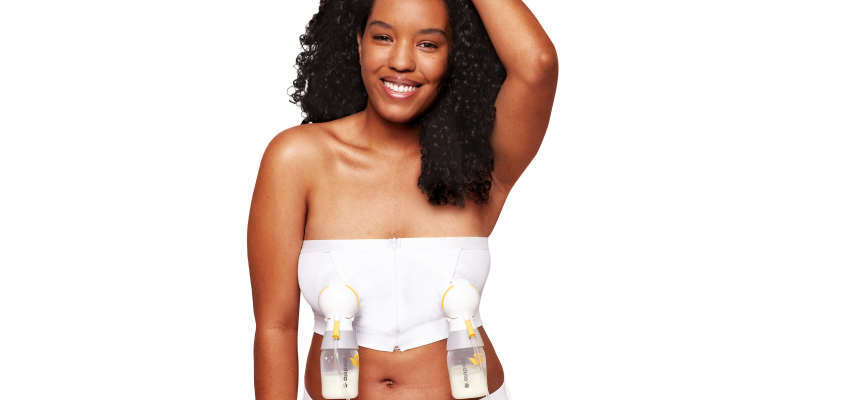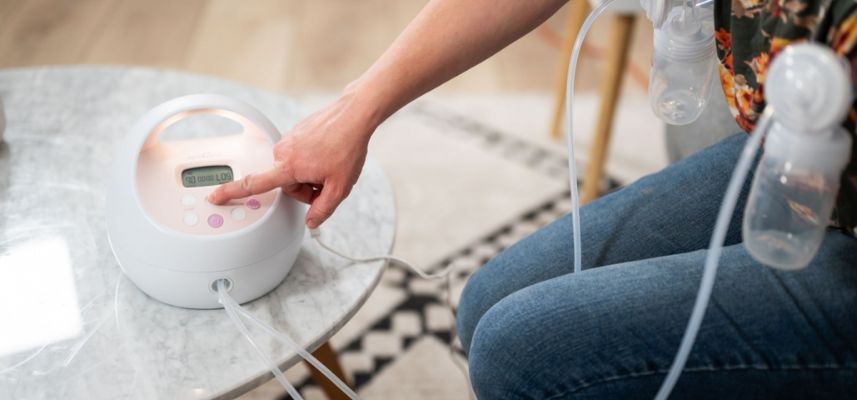Key Takeaways:
-
Postpartum swelling (also known as postpartum edema) is normal and affects most new moms, typically lasting up to two weeks
-
Common areas include feet, ankles, hands, and face
-
Seek immediate medical care if swelling is sudden, severe, or accompanied by headaches or chest pain
-
Simple remedies like elevation, wearing compression socks, and staying hydrated can provide relief
What is Postpartum Edema?
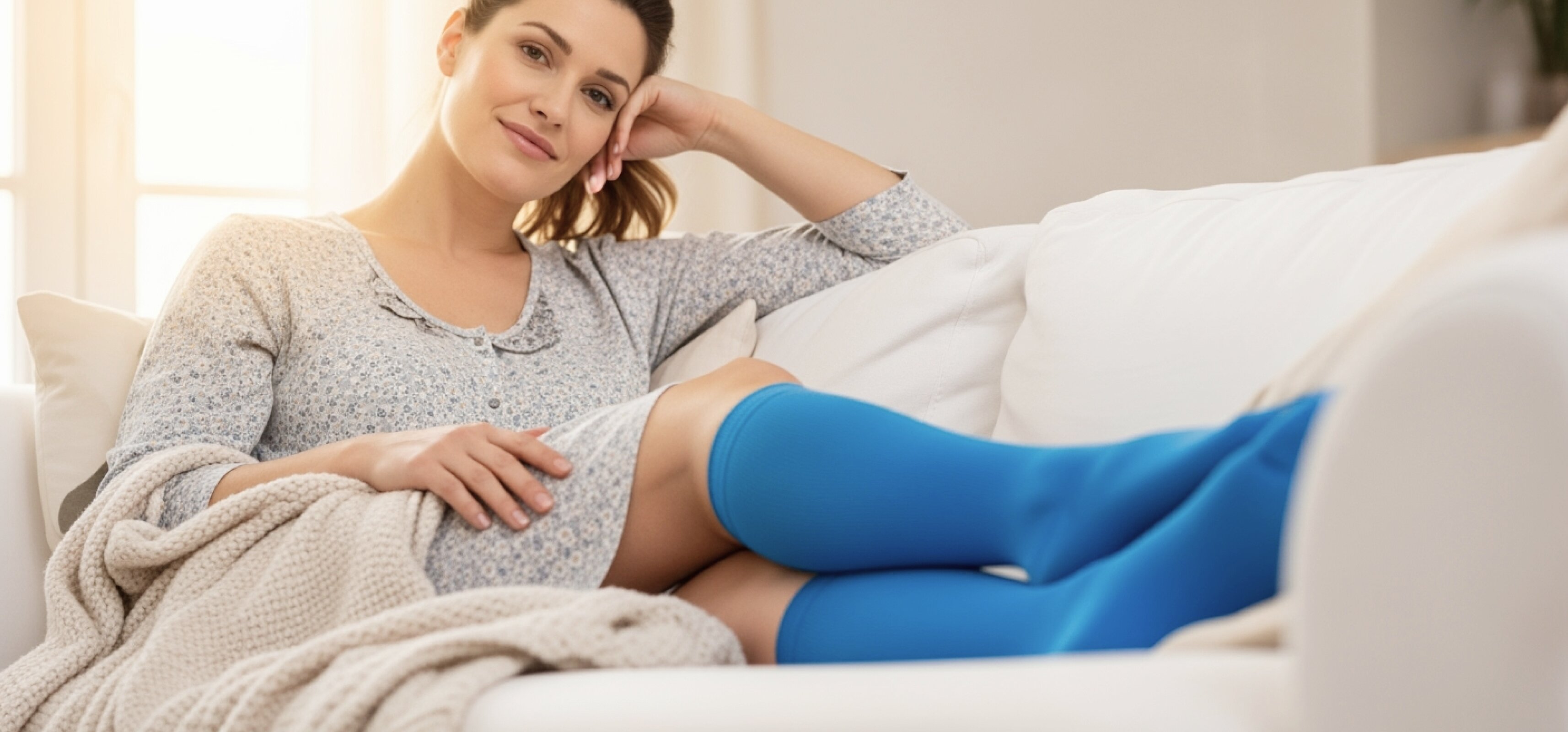

If you've noticed your feet looking like water balloons or your wedding ring feeling impossibly tight after giving birth, you're not alone. Postpartum swelling, medically known as postpartum edema, happens when your body holds onto extra fluid after delivery.
This puffy, stretched appearance in your hands, feet, ankles, and sometimes face is your body's way of adjusting after the marathon of pregnancy and childbirth. And even when you know about postpartum edema, you may still be wondering, "Hey, is postpartum swelling normal?" The answer is: Yes, it's completely normal to experience some swelling during the postpartum period! While it might feel alarming to see your ankles disappear into your legs, this is typically temporary and often resolves within a week or two.
Why Does Postpartum Swelling Happen?


Your body goes through incredible changes during pregnancy, including a 30-50% increase in blood volume. After giving birth, several factors contribute to swelling:
Leftover pregnancy fluid: During pregnancy, your body wisely stores extra water to support your growing baby. This extra fluid doesn't magically disappear the moment you deliver.
Hormonal shifts: Pregnancy hormones cause your blood vessels to dilate. After birth, it takes time for your body to readjust and process the excess fluid through your kidneys.
IV fluids during labor: If you received IV fluids during labor, especially with a C-section or if you needed Pitocin, this adds even more fluid to your system that needs to be eliminated.
Pressure from pregnancy: Your growing uterus puts pressure on major blood vessels, particularly the vena cava on your right side. This compression slows blood flow and can cause fluid to pool in your lower extremities.
Common Areas of Postpartum Swelling
While every body is different, postpartum swelling typically shows up in these areas:
-
Feet and ankles (most common)
-
Hands and fingers
-
Face, particularly around the eyes
-
Legs
-
Breasts (which can affect breastfeeding)
When Should You Worry About Postpartum Swelling?


Our medical director, Dr. Jessica Madden, explains that most postpartum swelling is normal and resolves on its own. However, she emphasizes that you should contact your doctor immediately if you experience any of these warning signs:
-
Sudden or severe swelling, especially if it appears overnight
-
Swelling on only one side of your body
-
One leg that's warm, red, and painful (possible sign of a blood clot)
-
Severe headaches with vision changes or sensitivity to light
-
Chest pain or difficulty breathing
-
Very painful swelling
-
Rapid weight gain (more than 2 pounds in a week)
These symptoms could indicate postpartum preeclampsia or other serious conditions requiring immediate medical attention. Your health matters, mama. Never hesitate to reach out to your healthcare provider with any questions or concerns!
How Long Does Postpartum Swelling Last?
Good news: Postpartum swelling usually lasts around 1-2 weeks, which means that as uncomfy as it is, it won't last forever! Most women notice their swelling peaks around day 5 postpartum and significantly improves within the first week. Your hard-working kidneys are busy filtering out excess fluid, which is why you might find yourself sweating more or making frequent bathroom trips.
Some factors can extend swelling duration:
-
Hot weather
-
Standing for long periods
-
High sodium intake
-
Dehydration (yes, counterintuitively!)
How to Treat Postpartum Swelling at Home


1. Elevate and Rest
Put those feet up! Elevate your legs above heart level for 20-minute sessions throughout the day. This helps gravity work in your favor, encouraging fluid to drain from your lower extremities.
2. Stay Hydrated
It seems backwards, but drinking more water actually helps flush out extra fluid. Aim for about 11 cups of water daily, especially if you're breastfeeding. Your body needs adequate hydration to efficiently process and eliminate retained fluid.
3. Wear Compression Socks
Compression socks can be game-changers for postpartum swelling. They provide gentle pressure that promotes circulation and prevents fluid from pooling in your feet and ankles. Many insurance plans cover these as postpartum recovery aids, too. It’s worth checking, and Aeroflow Breastpumps can help! Our experts can verify your insurance coverage for compression garments and other postpartum recovery essentials.
4. Move Gently
Light movement like walking helps pump fluid through your lymphatic system. Even simple ankle pumps while sitting can make a difference. Remember, we're talking gentle movement, mama. Save the intense workouts for later!
5. Watch Your Sodium
Keep an eye on your salt intake! While you don't need to eliminate salt entirely, being mindful of high-sodium foods can help reduce fluid retention.
6. Consider a Gentle Postpartum Massage
Ask your partner for a gentle foot or leg massage or book an appointment with a professional who offers postpartum massages. This can help promote blood circulation and provide some much-needed relaxation.
C-Section vs. Vaginal Delivery: Does It Make a Difference for Postpartum Swelling?


Women who deliver via C-section often experience more pronounced swelling due to:
-
Longer recovery time in bed
-
Additional IV fluids during surgery
-
Reduced mobility in the first few days
However, whether you had a vaginal birth or a C-section, management strategies remain the same!
Postpartum Life: Trust the Process, Mama!


Postpartum swelling is normal and your body is working hard to return to its non-pregnant state, but it takes a little time.
While you're navigating this recovery phase, be patient with yourself. Keep drinking water, use the comfort measures that work for you, stay in touch with your healthcare provider about any concerns, and remember that this too shall pass (in about a week or two). You're doing great, mama!
Have questions about postpartum recovery essentials? From helping you understand your insurance coverage to ensuring you have the right breast pump for your feeding goals, we’ve got your back. Aeroflow Breastpumps’ team of experts can help you navigate your benefits and get the support items you need for a comfortable recovery.


